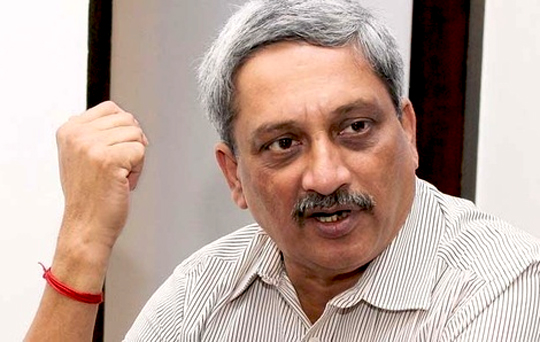New Delhi, Jan 11: Defence minister Manohar Parrikar on Monday asserted that any individual or organisation causing pain to India should be paid back in the same coin but how, when and where "should be of our choice", remarks which come in the backdrop of the Pathankot terror attack.

"I am of the opinion, it should not be taken as a government thinking, I always believe that if anyone harms you, he understands the same language.
"How, when and place should be of your choice but if someone is harming this country, then that particular individual or organisation, I purposely used the words individual and organisation, should also receive the pain of such activities," he said at a seminar organised by the Army here.
Asked to elaborate, Parrikar later said, "Basic principle is that until we give them pain, whoever they may be, until then, such incidents will not reduce".
Without referring to the Pathankot attack, the minister said the country was proud of its seven soldiers who laid down their lives but he is pained by the loss.
"I don't appreciate it. I have said that it is time we tell our soldiers that it is inevitable that we will lose some soldiers, and in this incident we lost one person in actual combat.
"We should tell them to think of the concept of taking life of your enemy, enemy of the country, instead of giving your life. This is an important aspect," he said.
He said that while sacrifice is respected, what nation needs is to neutralise the enemy.
Asked if that means there is a change in policy from the previous UPA government, Parrikar retorted, "If someone comes and hammers you, you should keep quite? Was that the policy?
"What I am saying is basically that history tells you that those who damage you, if they don't realise what pain they inflict, then they don't change".





Comments
There is a saying sir \Barking dog never bites\"....we would like to see you in action....you have to prove us that the this saying is not correct....at least kick out and close embassy of Pakis...."
Add new comment